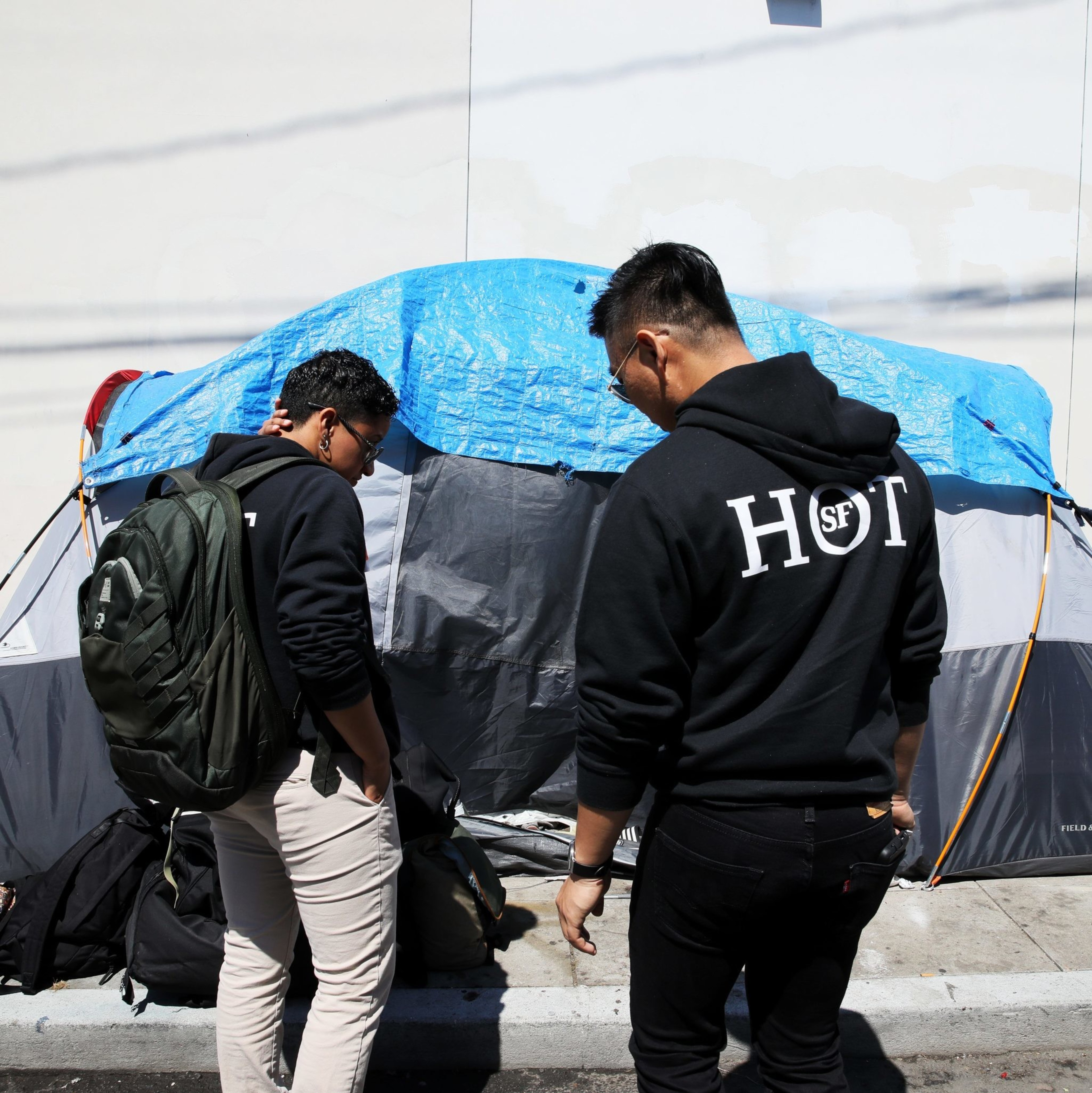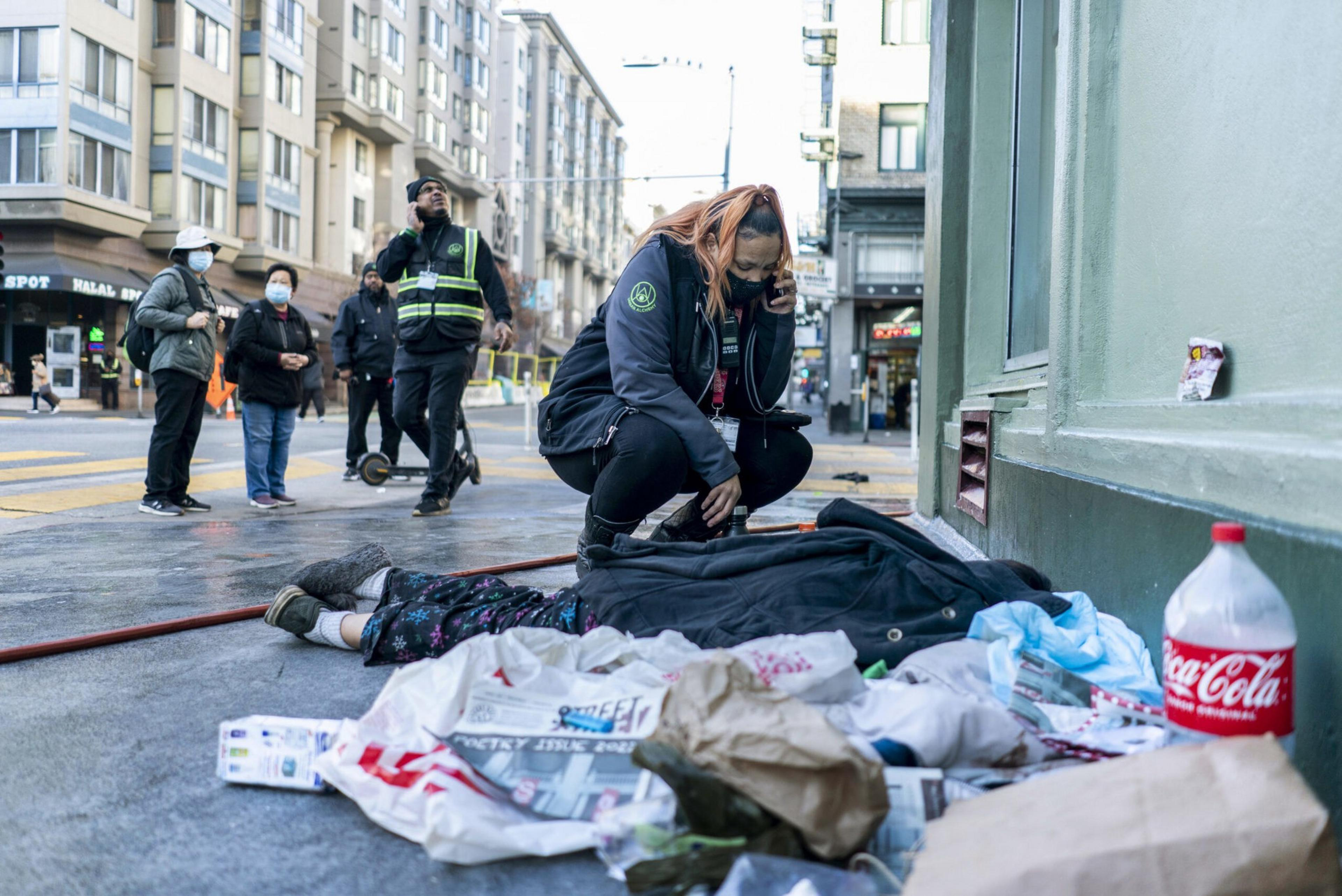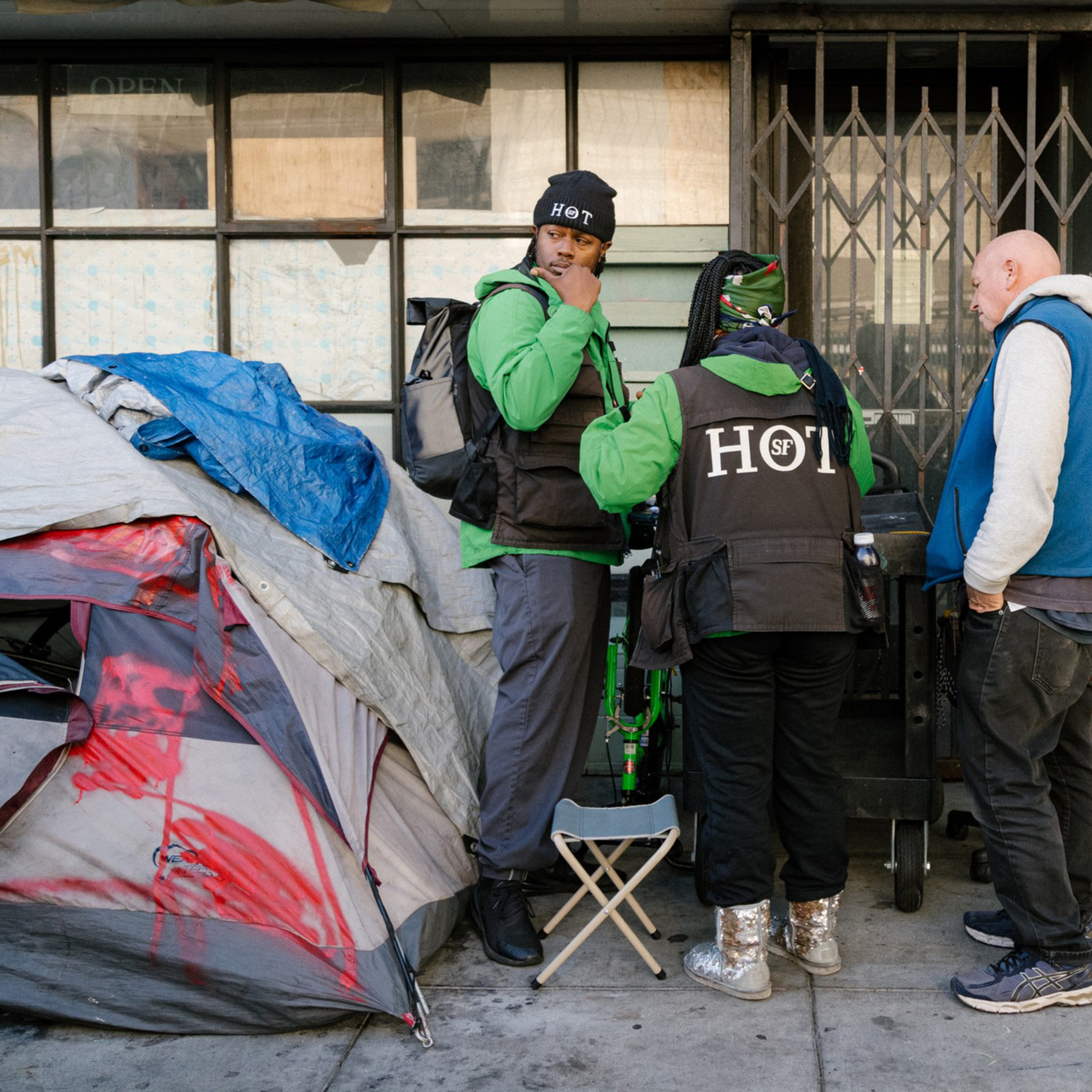San Francisco has slashed funding for its Homeless Outreach Team just as the city prepares to launch a stricter enforcement policy against encampments.
Officials approved a $1 million reduction to the team’s $10 million budget this year in an effort to consolidate the city’s 10 street teams tasked with responding to homelessness, public drug use and episodes related to mental illness, according to Mayor London Breed’s office.
Budget proposal documents indicate that cuts over the next two years will amount to $3.5 million, which is equivalent to 18 positions (opens in new tab) on the team. It was unclear at publication time how the cuts would affect operations.
In a text message to The Standard, Breed spokesperson Parisa Safarzadeh pointed to added funds for the Homeless Engagement Assistance Response Team, or HEART, run by the nonprofit Urban Alchemy, as an example of investments being made elsewhere. The nonprofit’s team received $3 million in funding (opens in new tab) from the city in 2023.

But advocates for homeless people say Homeless Outreach Team workers are more qualified than HEART to move people into shelter and housing. Additionally, the advocates allege that HEART’s data paint a questionable picture about its effectiveness.
The budget cut comes as San Francisco plans “very aggressive” sweeps of homeless encampments, following a ruling by the Supreme Court that allows cities to enforce anti-camping laws without offering shelter. Breed said during a mayoral debate last week that the enforcement measures would ramp up in August. On Thursday, Gov. Gavin Newsom directed state agencies and local governments to step up the sweeps.
“They’re shifting resources away from a team that helps people get off the streets to one that is basically just clearing sidewalks,” said Jennifer Friedenbach, executive director of the Coalition on Homelessness. “The focus on trying to reduce visible homelessness is really ineffective, it wastes resources, and it’s inhumane.”
In March, the most recent month of immediately available data, HEART responded to 1,303 incidents, or 98% of calls the team received. But of those incidents, 700 were considered settled because the person was “gone on arrival,” and 125 were referred to the police, the Department of Public Works, the Emergency Medical Services Agency or another street team run by the city.
According to the March data, HEART placed one person in a shelter, referred four to an emergency shelter and placed two in a triage center. The team also resolved 210 American Disability Act violations, meaning encampments were moved to make space for pedestrians.
In a statement, the Department of Emergency Management and Department of Homelessness and Supportive Housing said HEART completed more than 1,000 needs assessments and connected over 700 people to “benefits including shelter” with a team of 24 people last year.

In comparison, the Homeless Outreach Team conducted more than 2,100 housing assessments, made 2,400 shelter placements and transitioned 85 clients into permanent housing last fiscal year with a team of 64 people, according to the Department of Homelessness and Supportive Housing. The team also successfully transitioned 72% of its 200 clients into permanent housing, the department said.
In an initial statement July 18, the department said the city is grappling with a budget deficit, and the Homeless Outreach Team will continue to be funded in part by state resources and grants. There are 73 full-time positions funded in this year’s budget, the department said.
“While there are multiple street response teams in SF, [the Homeless Outreach Team] is uniquely positioned to move people off of the streets and into stability,” the department said. “SFHOT will continue to partner with HEART in its role to provide services that connect people to shelter and housing pathways.”
In a follow-up statement Thursday, the Department of Emergency Management and the Department of Homelessness and Supportive Housing said the city isn’t replacing one outreach team with another. While HEART responds to 311 and 911 calls involving homeless people, the Homeless Outreach Team will continue to conduct planned outreach operations.
“The way the city’s outreach teams work isn’t about replacing one for the other. Each team works in tandem to support daily efforts,” the departments said in a joint statement. “Staff of the HEART team have experienced homelessness themselves, which gives them a unique perspective that informs their work.”
The mayor’s office said the city will continue to connect people to shelters, housing and other services.
“[The city] will continue to work to ensure that the needs of our most vulnerable population are met,” a statement said. “The city’s budget reflects a redistribution of funding resources across the entire portfolio based on the demand of our teams and the level of needs.”


